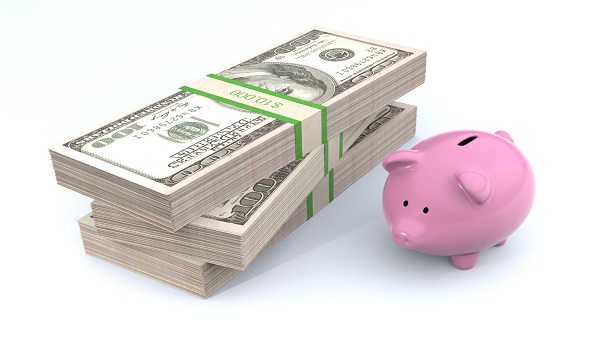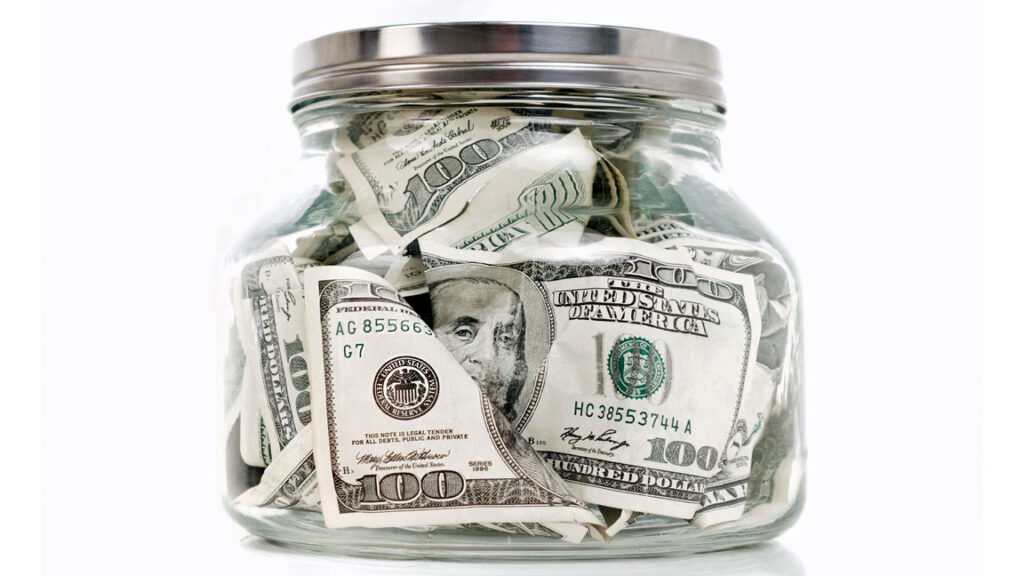Gomyfinance.com Create Budget Saving Money Tips Every Month: A Complete Guide
It’s a common misconception that effective ways to save money are only for the rich. However, that’s not necessarily the case. No matter what your monthly budget is, you should set aside some money for emergencies, larger purchases, or just peace of mind using Gomyfinance.com Create Budget Saving Money Tips .
Gomyfinance.com Create Budget Saving Money effectively only builds wealth over time, so don’t expect to become a millionaire overnight. The best ways to save money start with good financial habits you can practice every day.
From saving on groceries and cutting back on subscriptions to investing basics, we’ll cover practical ways to reach your savings goals and live a more stable life.
10 Practical Gomyfinance.com Create Budget : Saving Money Ways to Save Money Every Month

Let’s not sugarcoat it: saving isn’t fun, and no one does it when they don’t have to. As with all unpleasant things, saving money means you have to start thinking about it properly.
The ten money-saving tips below are not only practical, but will also help you form good habits to get into a money-saving mindset.
Low Income : Gomyfinance.com Create Budget

1.Low-Priced Food and Necessities
There are many effective tips on how to save on groceries, but it all starts with determining your budget and putting together a meal plan. Then, you can look for ways to buy products in bulk and take advantage of other discounts and loyalty programs.
If you need help with discounts, you can use apps like Ibotta, which is helpful for accessing discounts, cashback offers, and grocery rewards.
If you have the means and skills, you can even start growing your own vegetables as a hobby. The amount you can save depends largely on your household’s needs, so it’s important to get the whole family involved and keep a healthy shopping list.
2.Lower Transportation Costs
According to the U.S. Department of Commerce, food, housing, and transportation are the three biggest expenses. You can save money on all of them, but transportation is the one that presents the most options and has a big impact on your monthly budget.
Using public transportation, bike sharing, or carpooling with coworkers can significantly reduce transportation costs. Plus, there are cities that offer free transit passes for students, seniors, or families struggling financially, so be sure to check if these conditions apply in your city.
3.Cut back on unnecessary subscriptions
Recurring billing is great for services you actually use and that offer you a good deal when you buy them, but that’s not always the case. Online subscriptions for entertainment are one of the biggest culprits, as some companies rely on you not realizing they’ve raised prices or that you’re no longer using their services.
Tracking your subscriptions with specialized apps, like Rocket Money, can help you avoid paying for services you no longer use. Plus, you can look into free alternatives to paid subscriptions, like free streaming platforms, trials, and more.
A frugal strategy is to periodically review recurring payments and set reminders for when they end. Almost every recurring bill, from a cell phone plan to Netflix, will change in price and other terms over time. Subscriptions should be managed like debt if you want to save money.
Also Read : 5starsstocks.com 3D Printing Stocks: Unlocking the Future of Additive Manufacturing
4.No-Spending Periods
If your spending habits are out of control, try setting a no-spending period. Depending on your current habits, this can be a month, a week, or a few days. For short periods, you can prepare food in advance and try not to buy anything.
Keeping your wallet closed for more than a few weeks can be tricky. There are bills to pay, and free activities can dry up quickly. So the challenge here is to save money on unnecessary spending: fast food, bars, online gaming, or anything else that will blow your budget.
Middle Income : Gomyfinance.com Create Budget

1.Set realistic financial goals
One of the most common reasons people don’t save money is their disbelief in reaching their financial goals. Just because you’ll never save for a mansion doesn’t mean you shouldn’t set money aside. Start with realistic goals that won’t discourage you.
There are two types of financial goals: short-term and long-term. Short-term goals include vacations or emergency funds, and long-term goals revolve around saving for a home or retirement. Set realistic goals for both types, meet them, and your financial goals will become a reality.
2.Open a separate savings account
It’s generally recommended to set aside about 20% of your monthly income for savings, but just having a savings account is a big step forward. Many Americans don’t even have one, let alone high-yield savings accounts or investment portfolios.
Consider opening a high-yield savings account and automatic savings apps like Digit to maximize your savings potential. These tools will make a direct deposit from your checking account to your savings account automatically, meaning you won’t have to do any manual work every month.
An account with an annual percentage yield (APY) above 5% can be considered a high-yield savings account, but any account that offers a return better than inflation will save you money. If you keep your savings in a checking account or cash, you’re actually slowly losing them.
3.Lower transportation costs
If you can’t make the full transition to public transportation, biking, or carpooling, another idea you may have is to buy a fuel-efficient car to reduce fuel costs. Or, if you can afford it, consider investing in an electric car and charging station.
You can also try to negotiate better rates with your insurance company to reduce overall transportation costs. If you’re thinking about switching cars, be sure to check which cars typically have the cheapest insurance costs.
High Income : Gomyfinance.com Create Budget

1.Invest in Retirement Accounts
Retirement accounts are a great way to save for the future while still earning a tax refund. For example, a 401(k) plan offers reduced taxable income, helping you save money before retirement; and Roth IRAs offer tax-free withdrawals, which is great for those who expect to be in a higher tax bracket.
If your employer offers you a 401(k) match, make sure you take full advantage of it. It’s basically free money that could increase your retirement savings exponentially. Let’s say your employer offers you a 50% match on your contributions. That’s basically a 50% return on investment (ROI). It’s a great way to grow your retirement fund without active effort.
2.Green Energy Solutions
Installing green energy solutions, such as solar panels or energy-efficient home improvements, is not only good for your wallet, but also for the environment. Depending on your geographic location, solar panels could significantly reduce your electricity bill since you will be generating your own energy.
While the initial installation cost is quite steep, it pays for itself in the long run. Not only that, but it also increases the value of your property in case you are considering moving.
In addition, your government may offer financial incentives to help alleviate some of the cost as the green initiative gains momentum. If you plan to install any green energy solutions in your home, be sure to check if you would be eligible for government support.
3.Hire a financial planner
Sometimes, problems are so complicated that you cannot find a solution on your own. This can happen with finances as well, and there is nothing to be ashamed of. It is more important to start turning your situation around and seek help from a professional.
Be sure to look for a certified financial planner who has a solid reputation for helping clients manage and grow their wealth effectively, and not someone who simply advertises themselves as such. They usually help most with mortgages and other large financial responsibilities, but you can get some good advice on how to develop good financial habits.
Achieve specific savings goals
It’s much harder to save money when you don’t have a savings goal. It could be a new gaming computer, a vacation, college tuition, or anything else you’re excited about. Building good habits is easier if you have a goal and can then start saving a specific sum on a regular basis.
How to save $1,000 in 30 days?
Create a budget and track spending. Review what you spent last month, eliminate unnecessary expenses (like subscriptions, restaurants, drinks), and create a spreadsheet (or use an app) to track everything you spend.
Take on the challenge of not spending. Try a no-spend challenge for a week, where you only buy the absolute essentials and no afternoon lattes, snacks, online shopping, or anything else.

Automate your savings. If you’re determined to save $1,000 this month, you could use an app to transfer a predefined amount of money from your checking account to your savings account every day or every week.
Sell unused items. Find clothes, electronics, or anything else you no longer use and sell them on the marketplace of your choice. You can use Facebook Marketplace, eBay, Amazon, or any other platform.
Get a side job. Try finding a freelance job on Upwork or Fiverr, look into dog walking or babysitting services. This may result in a permanent side job, so it has even more potential than $1,000.
Cut back on daily habits. If you are someone who buys a cup of coffee every day or smokes a pack of cigarettes, cutting back on these things will significantly contribute to your savings goals and your health as well.
Use coupons and cashback apps. You can save more on groceries by taking advantage of coupons and apps like Ibotta, Honey, or Rakuten for cashback offers and discounts.
Follow these money-saving tips and you’ll save $1,000 in no time.
Saving for Bigger Goals

Strategies for saving even larger sums, such as a down payment on a house, will require longer savings periods. Additionally, you can try investing, but keep in mind that the idea of getting high and fast returns will also create a high risk of losing your savings.
Therefore, cutting expenses and automating transfers from checking to savings is the surest way to save large sums of money. Depending on your income and the percentage of money you save, any financial goal can be achieved over time.
How to save money quickly?
The quickest way to save large amounts of money is to drastically cut expenses. Most people can cut their monthly expenses in half. You can do it too, but you will have to sacrifice your quality of life.
Key things to consider include canceling unnecessary subscriptions, creating a meal plan for grocery shopping, and saving on electricity. If this doesn’t produce the desired result, consider selling some belongings you don’t use.
Gomyfinance.com Create Budget Rules to Follow
Your budget can’t be based entirely on your own savings goals. Any certified financial planner will tell you specific rules for creating your budget. There are no silver bullets when it comes to personal finance. Your budget will need to be tailored to your individual needs, but the rules below are a great way to get started and you can also follow Gomyfinance.com Create Budget Rule given below:
The 50/30/20 Rule : Gomyfinance.com Create Budget Rule

The 50/30/20 Rule is an easy-to-understand method for managing your finances. It gives you a simple guideline for the proportions of your monthly spending. There are only three categories:
50% of expenses go to “needs” – bills, health care, food, etc.
30% is for “wants” – hobbies, luxuries, vacations, etc.
20% is left for your savings – money you put toward your savings goals or larger purchases.
The last 20% is crucial and shouldn’t be skipped unless you have a lot of high-interest debt. The interest rates on your credit card debt can eat up all your savings, so it makes more sense to pay it off first in those cases.









